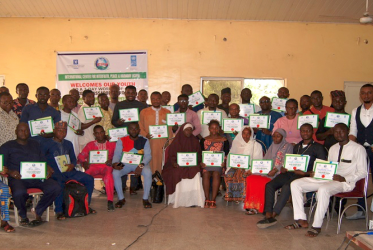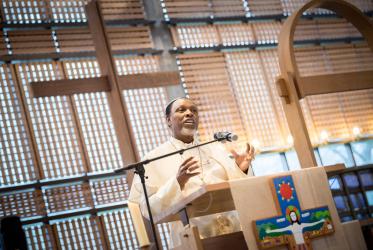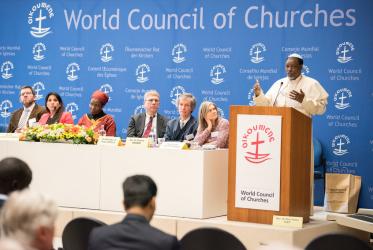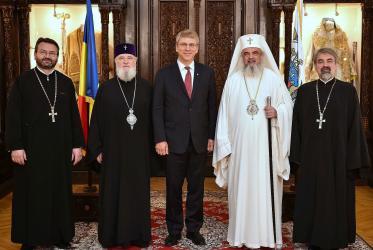Displaying 1 - 20 of 20
Romani people seek “lives of decency, dignity, and justice”
27 September 2018
Paving the way for ecumenical studies, learning English in Bossey
24 September 2018
Walking together against hatred and violence
26 February 2018
In Nigeria, WCC workshops focus on human rights
04 December 2017
Nigerian Christians and Muslims open historic peace centre
20 August 2016
Religion: Way of war or path to peace?
30 June 2016
WCC urges responsibility for and support to the refugees in Europe
04 September 2015










